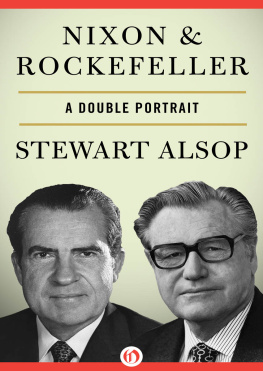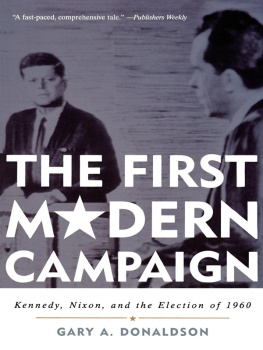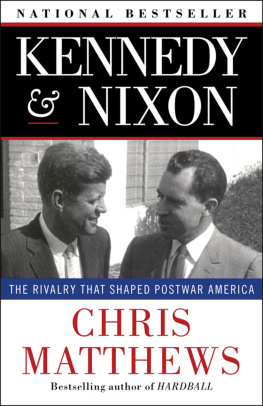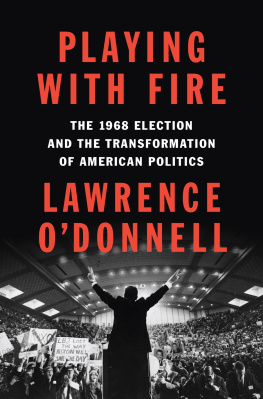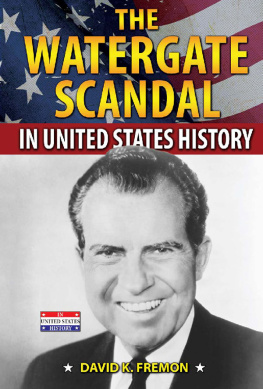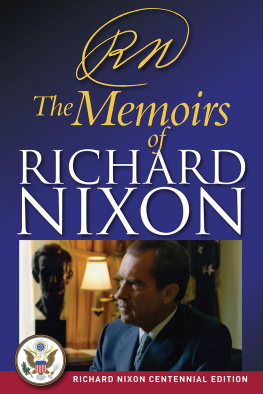About the Author
Stewart Alsop (19141974) was a longtime political columnist and commentator on American affairs. A graduate of Yale University, he worked in book publishing until World War II. Rejected by the US Army for medical reasons, he joined the British Army and fought with the Kings Royal Rifle Corps in Italy. He transferred to the US Army in 1944 to carry out missions planned by the Office of Strategic Services (OSS)the topic of his book Sub Rosa, written with OSS compatriot Thomas Braden. He was awarded the Croix de Guerre with palm for his work on wartime missions in France.
From 1945 to 1958, Stewart Alsop was cowriter, with his elder brother Joseph Alsop, of the thrice-weekly Matter of Fact column for the New York Herald Tribune. He went on to become the Washington editor of the Saturday Evening Post and wrote a weekly column for Newsweek from 1968 until his death in 1974. His final book, Stay of Execution, traces the yearshis lastafter his diagnosis with a rare form of leukemia.

EARLY BIRD BOOKS
FRESH EBOOK DEALS, DELIVERED DAILY
BE THE FIRST TO KNOW
NEW DEALS HATCH EVERY DAY!


EARLY BIRD BOOKS
FRESH EBOOK DEALS, DELIVERED DAILY
BE THE FIRST TO KNOW
NEW DEALS HATCH EVERY DAY!

Bloviation
A political reporter rarely has a chance to ramble aboutto bloviate, to use President Hardings contribution to the language, or, as the British say, to natter. He is hedged inhe must operate within a strict enclosure of a few hundred or a few thousand words. A book is open-ended. A reporter who starts writing a book feels like a horse let out to pasture after too long a time in his confining stall. No doubt that is one reason why journalists like to write books. It is also no doubt a reason why so many books written by journalists are not very good.
Even so, I want to seize this opportunity to bloviate or natter about the nature of the American politician. This may seem an odd way to start a book about Richard Nixon and Nelson Rockefeller. And yet it helps to explain something about themthe fact that they are really a lot more alike in a good many ways than they appear to be on the surface. They share certain well-marked characteristics. And these characteristics, in turn, are shared by almost all major American politicians. Take, for example, the current crop of serious presidential candidates in both partiesNixon, Rockefeller, Lyndon Johnson, Jack Kennedy, Stuart Symington, Hubert Humphrey, Adlai Stevenson. These seven men are very different in many ways. But with the possible exception of Adlai Stevenson, who is a political sport or mutation, they are also markedly alike in certain other ways.
The first characteristic that all these men share (always bearing in mind that Stevenson is a possible exception) is a Call, or Sense of Mission. They genuinely feel that there is something that they, and only they, can contribute to the nation and the world.
It is extremely fortunate that most important politicians feel this sense of mission, for it is essential to the proper functioning of our political system. Without it, no man who was entirely sane would enter politics, the worst paid and most insecure of professions. Why, after all, should Nelson Rockefeller work harder at the sweaty business of politics than his grandfather worked to become the richest man in the world? Or why should Richard Nixon turn down the firm offer of a law partnership worth over $100,000 a year to run again for Vice-President? Sometimes, of course, the sense of mission is made up largely of a love of power, but there is almost always some element of idealism in it, too. Lyndon Johnson, for example, adores power, revels in power. Yet even the more cynical of the Capitol Hill reporters credit him also with a desire to serve his country.
The fact is that the American people, who are politically for the most part a pack of irresponsible boobs, are far better served by their politicians than they deserve to be. Millions of Americans never bother to vote, and most of those who do vote are gold mines of political misinformation, because they are too lazy or indifferent to inform themselves. If they got what they deserved, the American people would be governed by fools and rascals.
And yet look at the U. S. Senate. In that body there are not more than half a dozen fools or rascals. The rest are dedicated to the national interest according to their lights, and among them there are at least twenty men of very superior ability. The American people, who have been taught by those who should know better to regard the word politician as a pejorative word, are extremely lucky to have so many good men interesting themselves in the affairs of the nation. And they can thank that call, or sense of mission, or whatever it is that most major politicians have, for their good luck.
Another characteristic of the successful politician is that he is a natural actor of sorts. Almost all politicians have a touch of the ham in them (remember my little dog, Fala, and his Republican opposite number, Checkers) but they need more than mere hamminess. A major politician must be, like a great actor, hypersensitive to the reactions and emotions of other people. He must be able to smell the mood of the Senate, as Lyndon Johnson is able to do, or even to smell the mood of a whole nation, as Franklin Roosevelt was often (though not always) able to do. At the same time, a major politician, again like an actor, must be able to affect the mood of his audience, to move people to sympathy or anger or enthusiasm.
There is so much unnatural emphasis nowadays on naturalness, so much insincere guff about sincerity, that most politicians try to pretend that they never pretend. And yet a leading politician cannot possibly be naturalhe must rather often appear to be what his audience wants and expects him to be rather than what he is. So a politician builds up by layers a thick carapace, a protective outer shell which he turns to the world. All of us, to be sure, sprout such a carapace in time, but the carapace of a politician is particularly thick.
This is true of all the leading presidential contenders, but it is especially true of Nixon and Rockefeller. Virtually all enormously rich men grow by necessity a thick shell to protect them from the envious and rapacious world, and Rockefeller thus wears both the rich mans and the politicians carapace. As for Nixon, he is by nature strangely reserved and withdrawn for a politician. I cant really let my hair down with anyone, anyone at all, Nixon once remarked to me, which was his way of saying that he is never without his outer protective shell.
In writing about politicians, I have found that a good way to pierce the carapace, to find out something about what really lies beneath the outer shell, is to search out the boy who was father of the man. It is for that reason that I traveled to Whittier, California, where Nixon was brought up, and to Hanover, New Hampshire, where Rockefeller went to college, to talk to their teachers and to others who remembered them when they were boys. It was for the same reason that I wrote letters of inquiry to Rockefellers and Nixons classmatesexcerpts from the responses, some of which give a sudden vivid picture of the boys these men used to be, are included in the appendix.
Next page
